I have never changed oil in my life, even though I’m almost in my mid 30s. That probably makes me a disgrace to Tim Allen types, considering I grew up watching Home Improvement.
I remember my dad changing his car oil all the time in the 80’s and even 90’s. I think many people from my parent’s generation learned to change oil as a rite of passage to adulthood; but few people of my generation (Gen Y / Millennials) did. We’ve had no reason to, because quick-lube car shops change oil for $30, and that includes the oil! Considering the oil and filter probably costs at least $15-20 at non-wholesale prices, and you’d need to lay down some cash for tools, changing your own oil makes little sense unless you’re doing it just because you enjoy it.
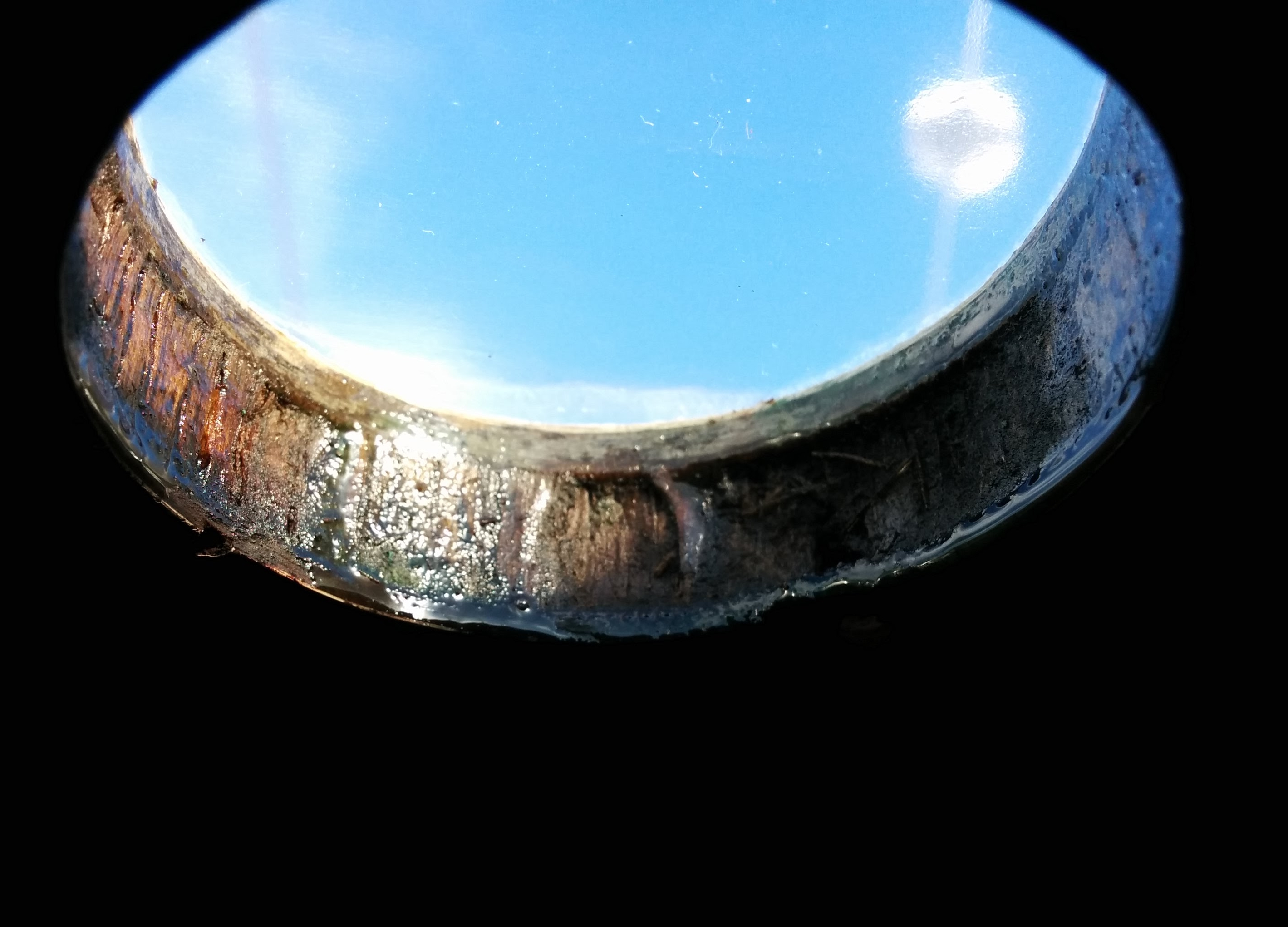
A deck fill port after epoxy sealing the balsa core
But now that I have a boat (and no car), changing the oil myself makes sense. There are few engine mechanics that work on small engines in tight boat spaces, and they don’t do it for anywhere near $30. Plus working on the engine builds valuable familiarity with your engine that will come in handy if it ever breaks down in a remote place or at an inconvenient time.
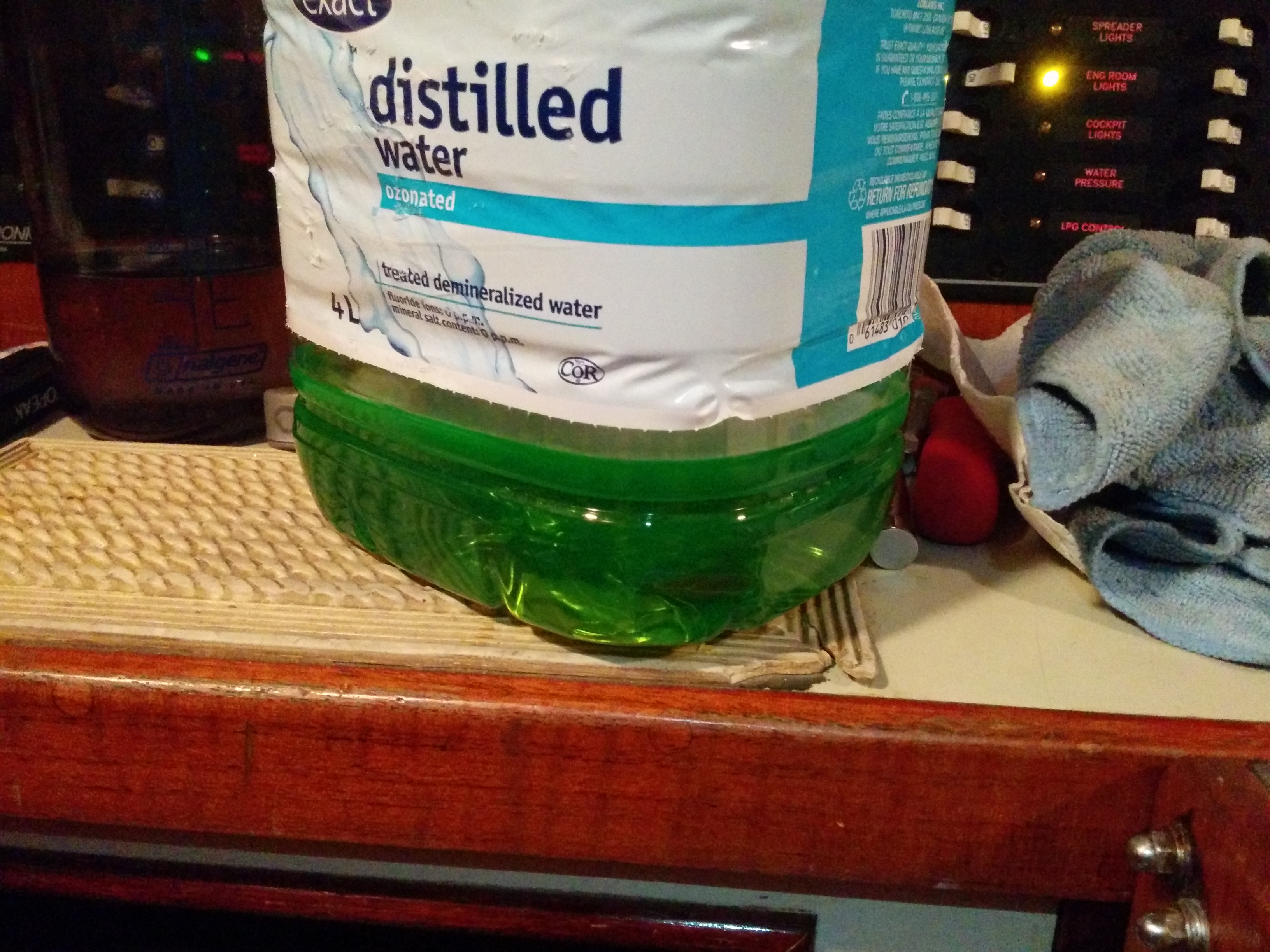
Coolant stored in a water jug
With boat projects I’ve learned to double or quadruple however much time people online say it takes. Since I’m learning every step of the way, changing the engine coolant took 4 hours where most people would probably say it takes them an hour.
There are always unexpected challenges:
- How to drain out all the coolant when changing engine coolant. Only 3L of 4.9L came out of the lower heat exchanger drain plug. My engine didn’t have a drain plug on the engine block, and I couldn’t figure out a way to get the old coolant out of the hot water heater lines.
- Epoxy potting deck thrubolt holes (a technique described by Don Casey and MaineSail / Compass Marine). When the deck coring is marine plywood, I’ve found Dremeling it back to be very difficult – bordering on impossible. The plywood was just so tough that my Dremel routing bit (#654) barely made a dent.
- When running new bilge hose, the job ballooned when I realized I needed to take up a floor board which required unscrewing the steel guard rail in the galley, then had to clean all the nastiness under that floorboard, and discovered an old broken section of drainage hose (for the hot water heater) that had been cut short but never removed.
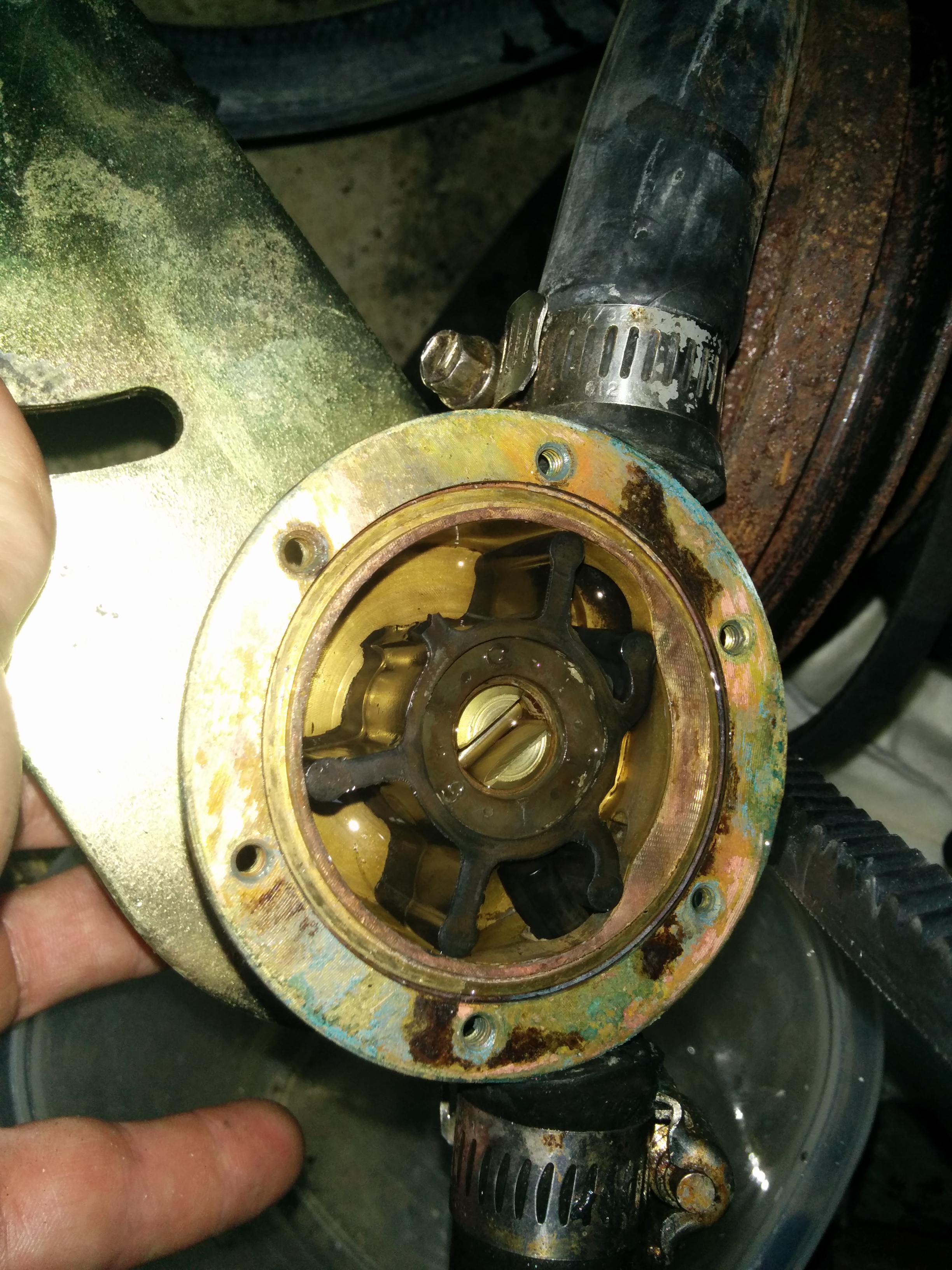
This is why you always check your raw water impeller after buying a boat – broken vane!
Since I’m a type-A engineer, I keep notes and logs of all the projects. A year from now it’s useful to know when something was done or how, or if nothing else it’s a way to remember how much I’ve done.
I’m not sure if readers of this blog like hearing about projects (I know my non-sailing friends + family are more interested in photos of cruises), but hopefully other boaters doing projects will find something useful here.
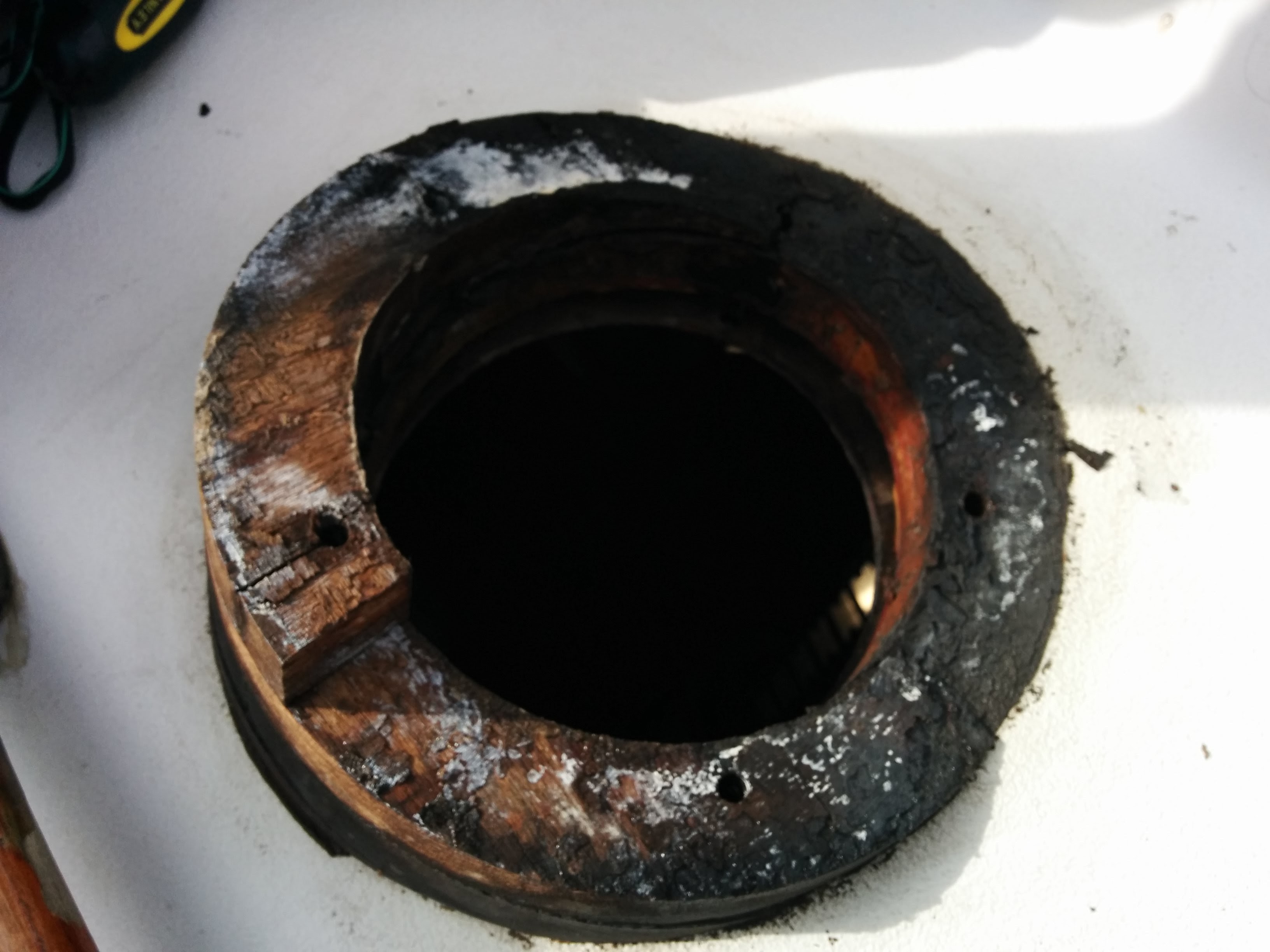
The old rotted wooden base of the heater deck exhaust
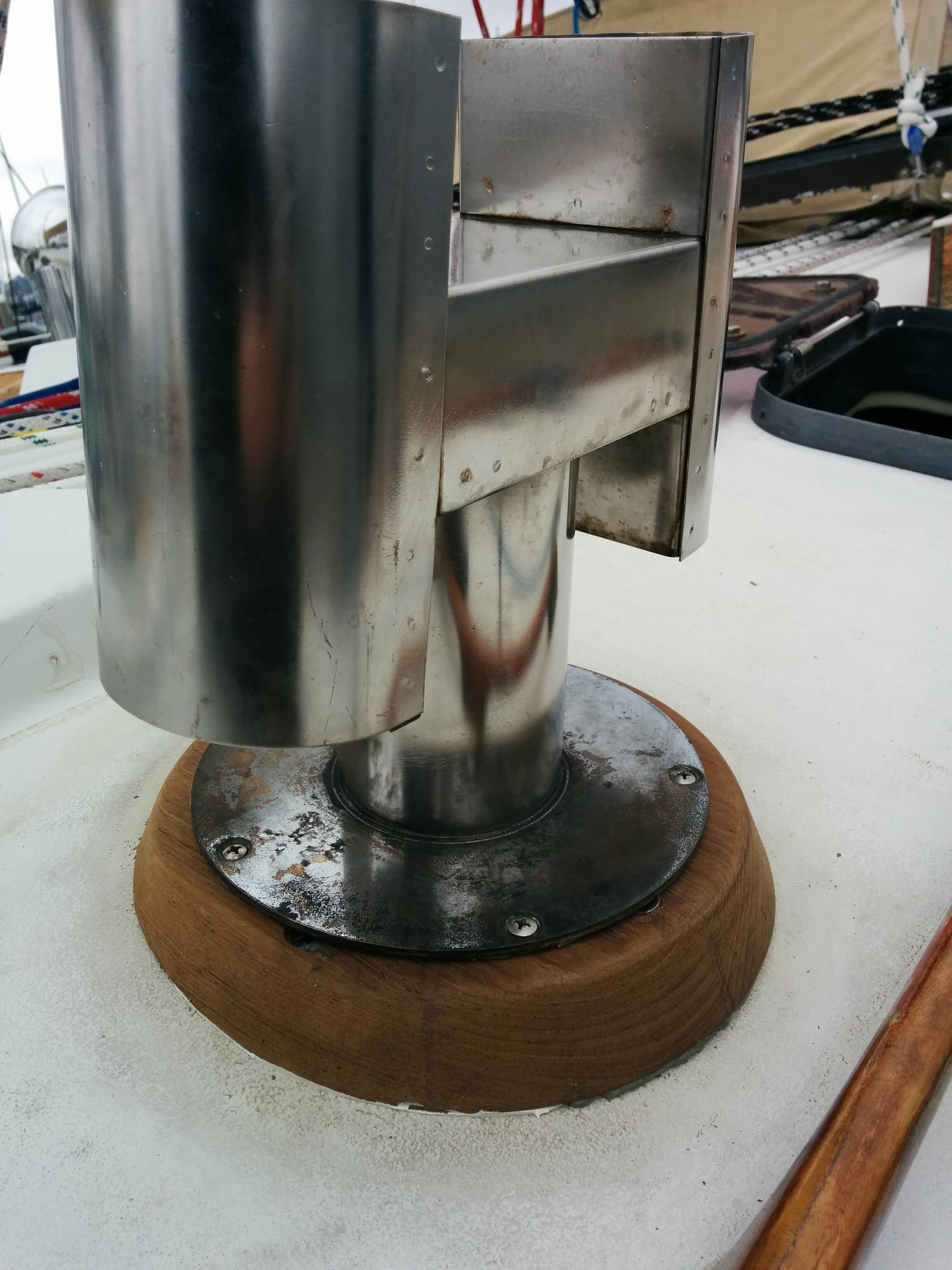
The finished teak cap plate
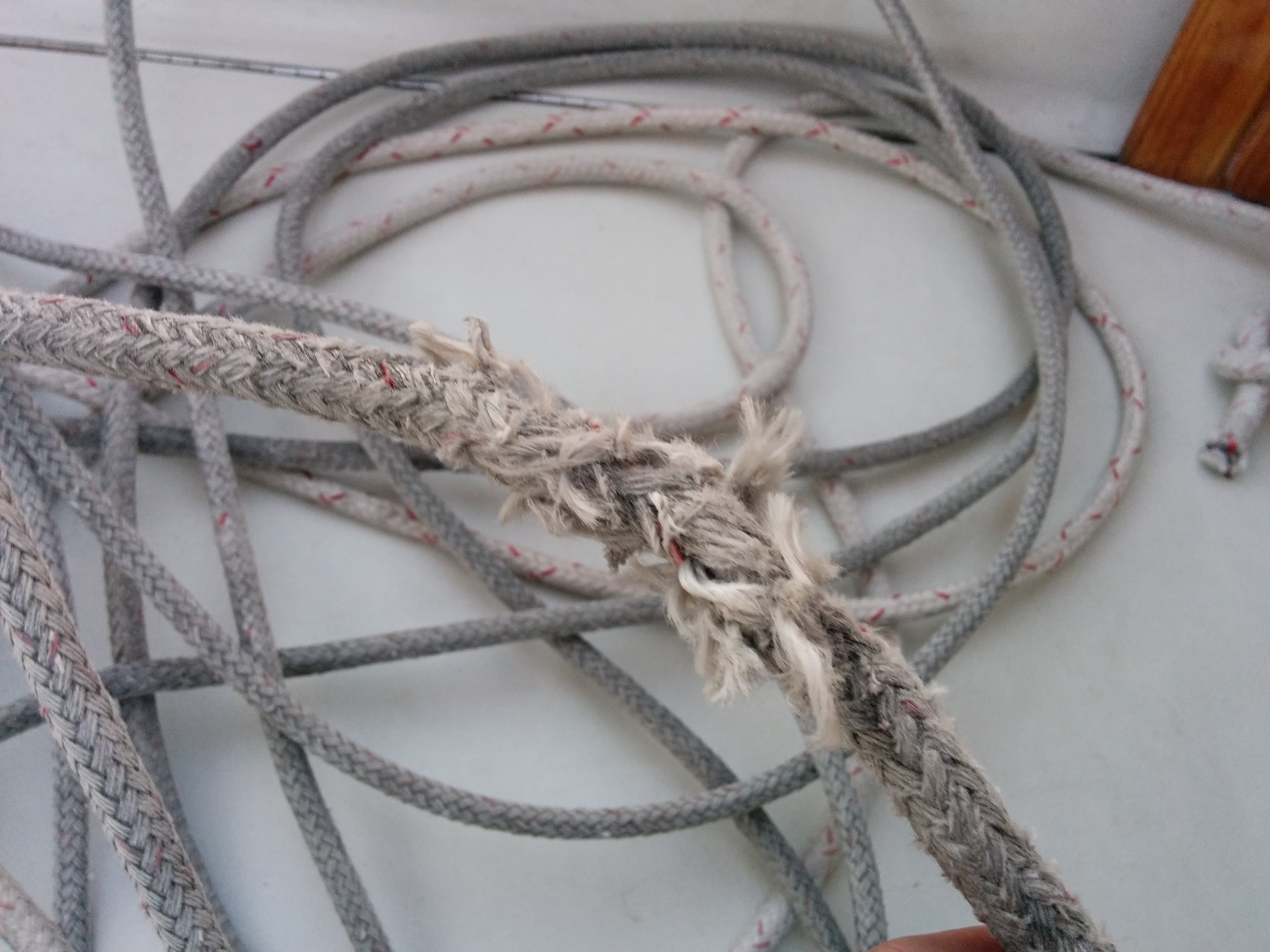
Frayed spinnaker halyard – glad I replaced this!
Here’s a sampling of recent projects:
- Installed a Raymarine i70 for speed readings, to replace the old broken Datamarine speed instrument.
- Replaced 2 engine mounts.
- Rebuilt manual bilge pump and replaced bilge hose which had a hole in it.
- Rebedded deck fill ports.
- Removed and rebuilt the wooden base for the diesel cabin heater deck cap (exhaust).
- Rebedded two U-bolts and two deck-to-bulkhead tie downs.
- Installed a longer hose length between the raw water filter and raw water pump. The pump needs to be removed from the engine to inspect the impeller, so a longer hose allows me to move the pump into an area where it’s easier to access.
- Replaced all halyards with new line.
These projects sound like a lot of work – and they are – but I actually don’t look at it as work, since I enjoy it – I’m learning new skills and making the boat better in the process.
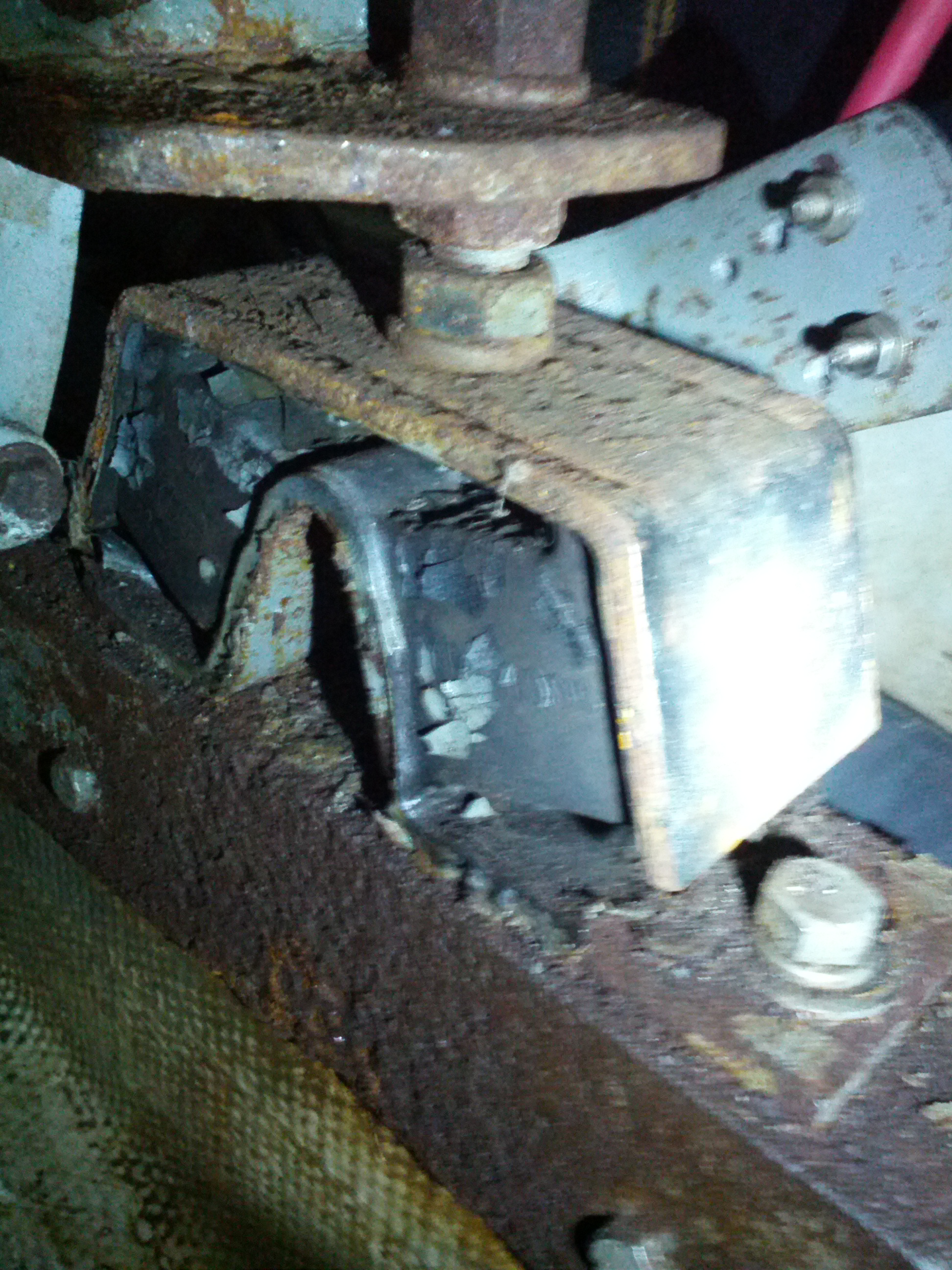
An old engine mount
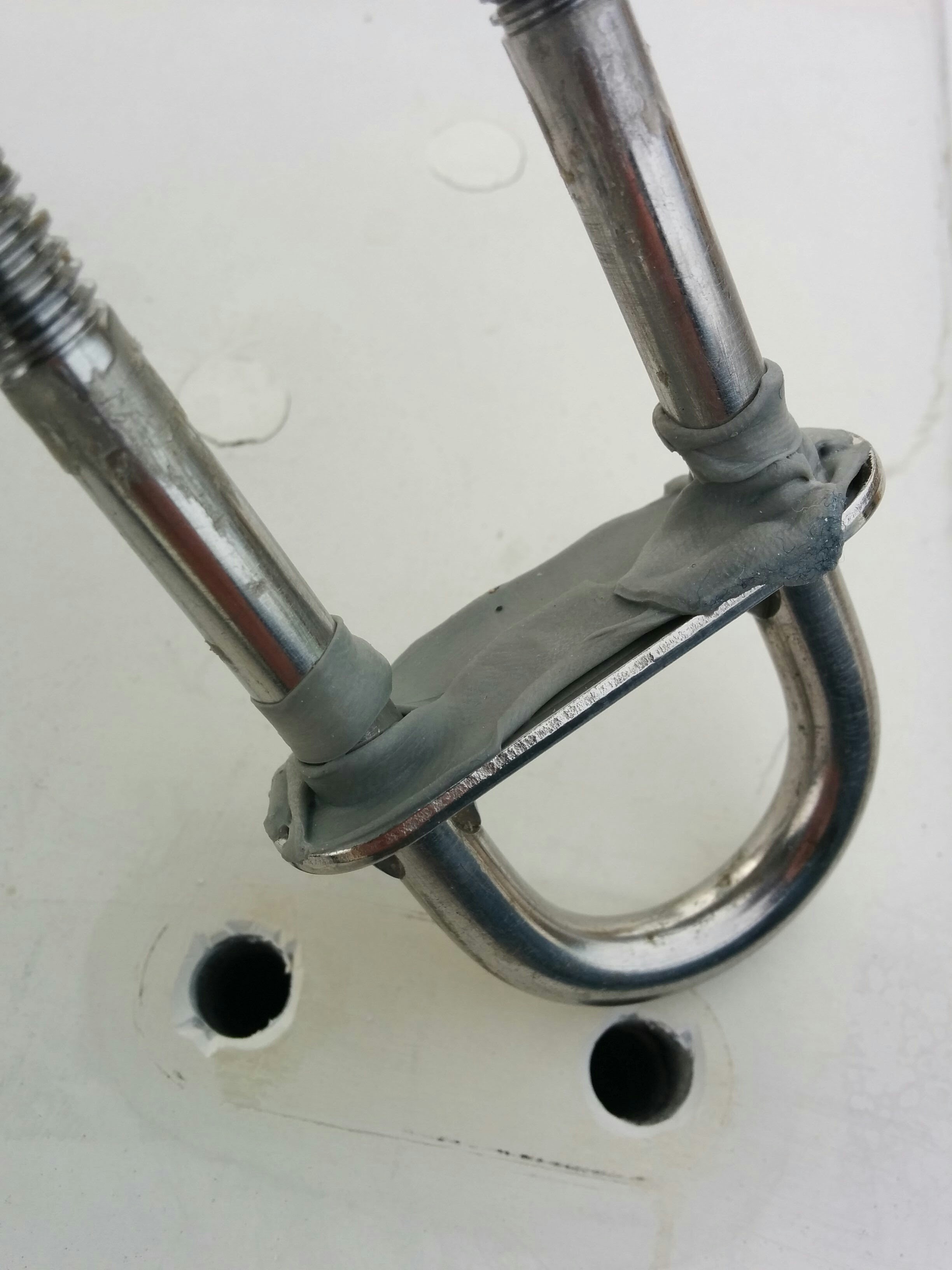
Rebedding U-bolts with butyl tape
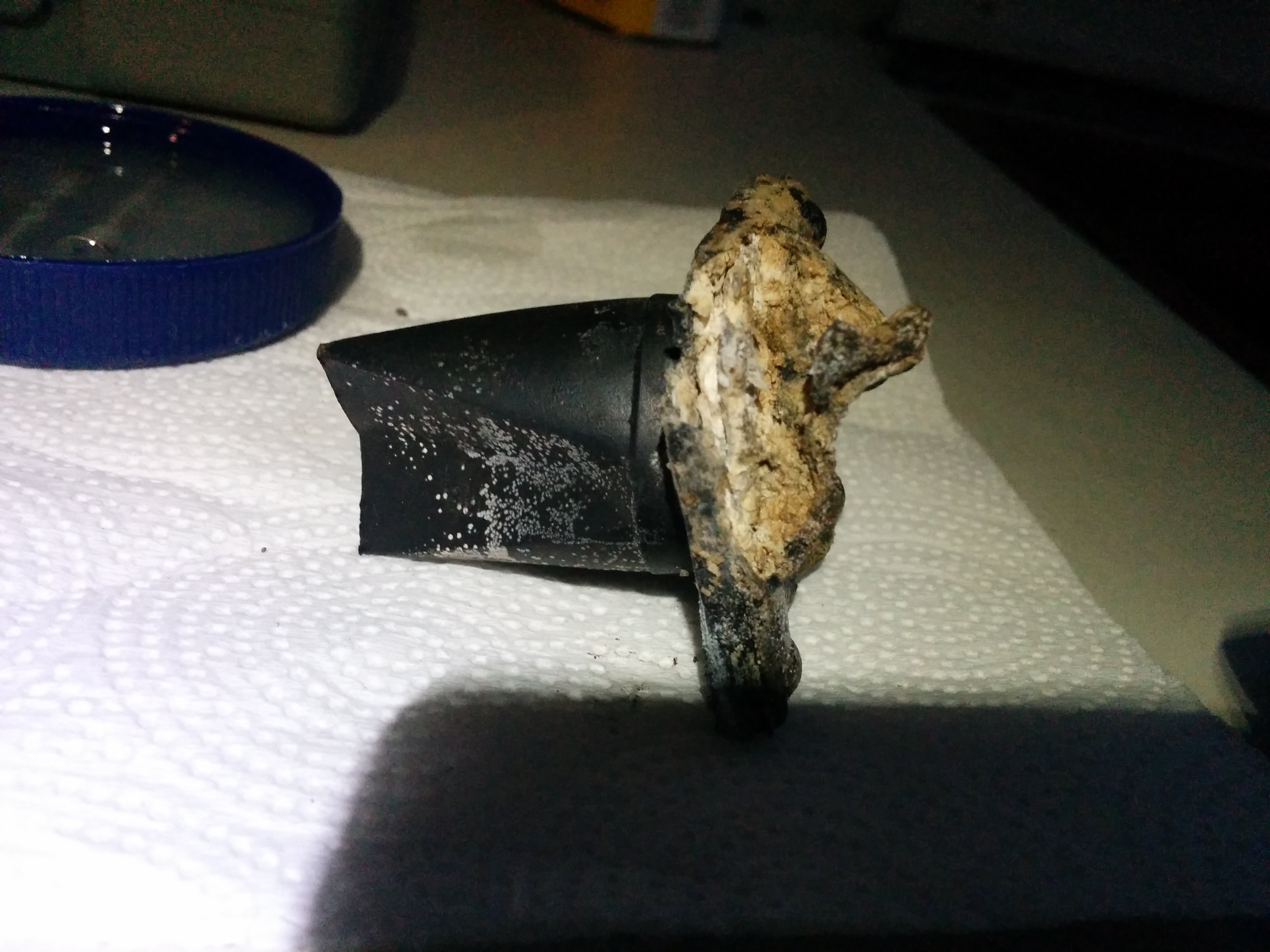
The duck bill valve from the manual bilge pump – pretty disintegrated
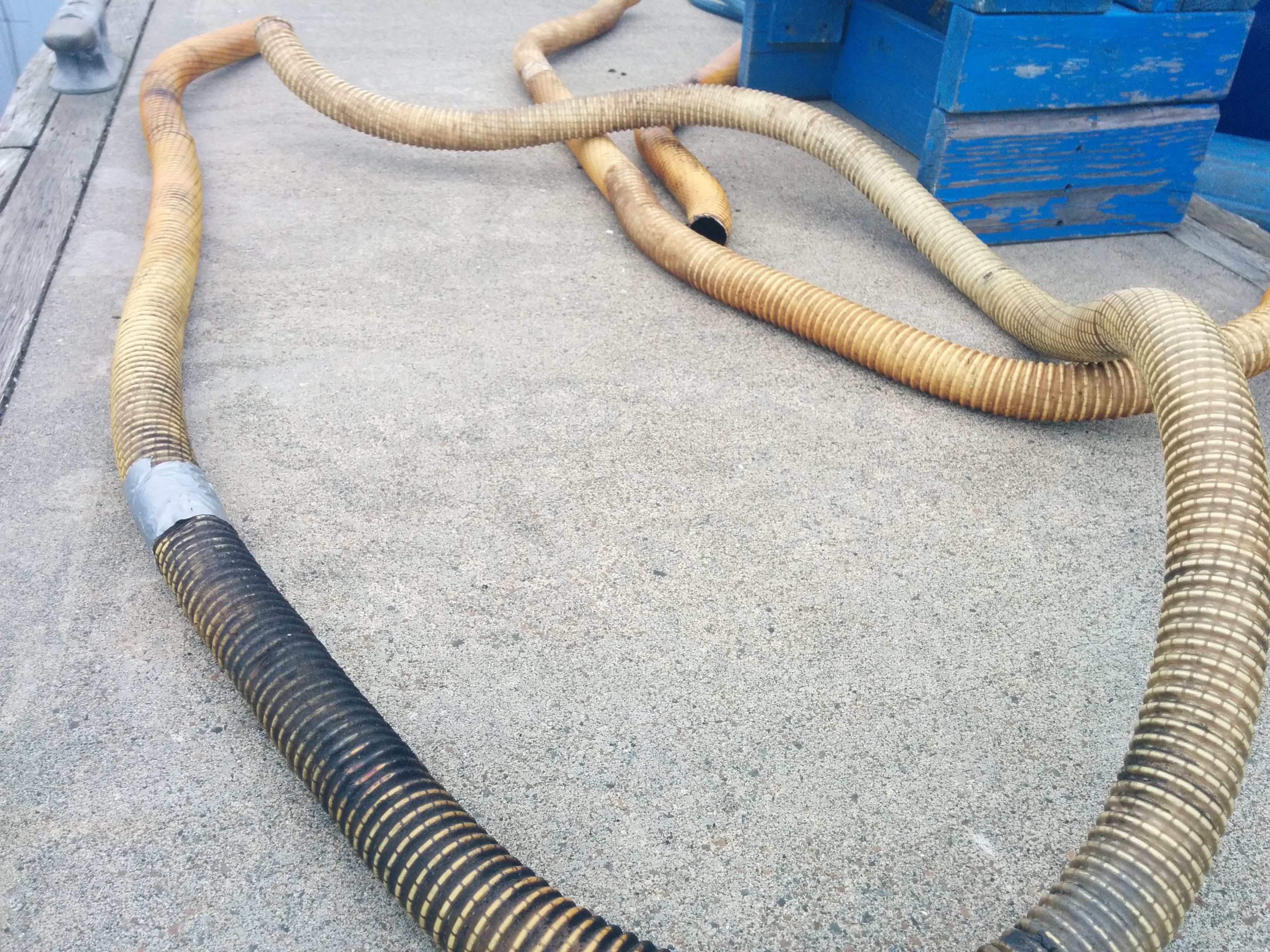
Old bilge hose – getting this out didn’t take too long (because I could cut it), but getting the new one in took way longer than expected
